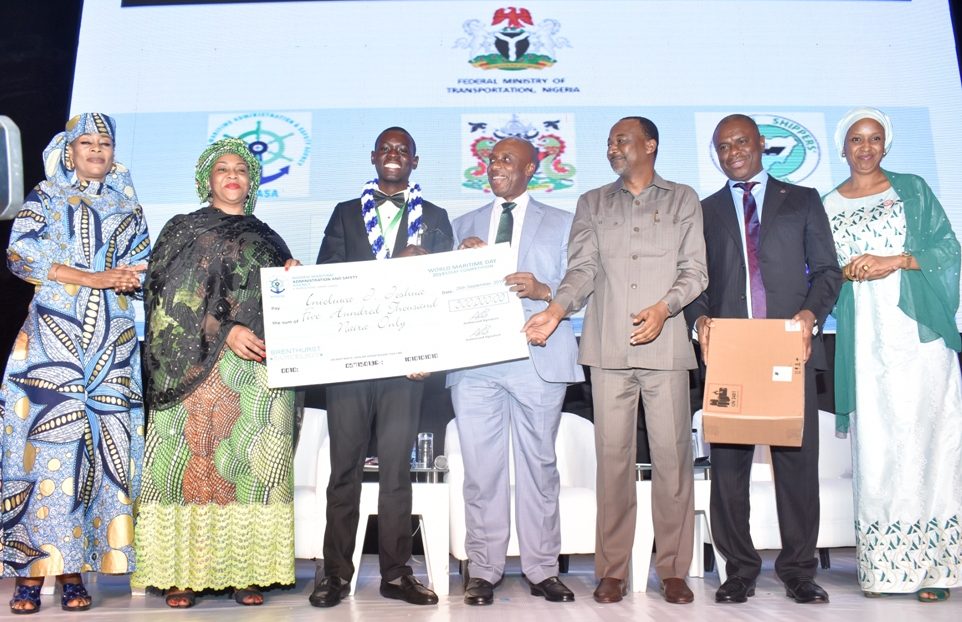
The Minister of Transportation, Rotimi Amaechi, has said that the new maritime security infrastructure being built by the Federal Government known as the deep sea project would be a major economic trigger for the country.
Amaechi stated this in Lagos, while speaking with the media during the World Maritime Day celebrations, with the theme, “Empowering Women in the Maritime Community”.
Amaechi said the deep sea project, which aims to secure the country’s territorial waters up to the Gulf of Guinea, would inspire greater investors’ confidence in the Nigerian maritime sector and boost the sector’s contribution to the national economy.
“With this security infrastructure, the revenues of the agencies in the maritime sector will increase and the revenue to the country will also increase. Currently, maritime sector is returning less than N100 billion. They should be doing more than that. They should be returning above N300 billion. But in terms of the economy, the maritime industry is contributing quite a lot,” the minister said.
He also spoke on the government’s plan to enhance rail connection to the nation’s seaports.
“All seaports in Nigeria must be connected by rail; that is a policy of government. We have put in place a 25-year
modernisation programme for the rail system. With the master plan, we have taken rail from where the past government stopped into the seaports.
“For instance, the current Lagos-Kano rail line began from Ebute Metta. But when we came, we started another line from Ebute Metta to Apapa seaport. With this, when you bring in your goods, you turn them to the rail that takes them to the hinterland. The one from Lagos to Calabar will link the Calabar, Port Harcourt, and Onne seaports, and so on,” he stated.
The Director-General of NIMASA, Dr. Dakuku Peterside, who made a presentation on the measures by the Federal Government to tackle maritime security in the country, expressed the hope that women will play a major role in the execution of the anchor security scheme deep sea project.
The event also saw 13 women being honoured by the Federal Government for being pioneers in the maritime industry. Those honoured include the Minister of State for Transportation, Senator Gbemi Saraki; Chairman, House of Representatives Committee on Maritime Safety, Education and Administration, Lynda Chuba Ikpeazu; Managing Director of Nigerian Ports Authority, Hadiza Bala Usman; Chairman, Seaport Terminal Operators Association of Nigeria (STOAN), Princess Vicky Haastrup; a former Director at the International Maritime Organsation (IMO), Mrs. Monica Mbanefo; the first female two-star General in the Nigerian Navy, Rear Admiral Itunu Hotonu (retired), and former Director-General of the Nigerian Maritime Administration and Safety Agency (NIMASA), Mrs. Mfon Usoro.
Others include former Acting Managing Director, National Inland Waterways Authority (NIWA), Mrs. Chinwe Ezenwa; former Chairman, Nigerian Fishing Trawlers Owners Association (NITOA), Mrs. Margaret Onyema-Orakwusi; former Director-General, Nigerian Chamber of Shipping, Mrs. Ify Anazonwu-Akerele; Director Special Duties of NIMASA, Hajia Lami Tumaka; former Director-General, Indigenous Shipowners Association of Nigeria (ISAN), Ms. Funmi Folorunsho; and former Director, Marine Environment Management, Mrs. Abiodun Gunwa.
Ten students, who excelled in an essay competition organised by NIMASA as part of the activities in commemoration of the event were awarded the agency’s educational grants at the occasion.